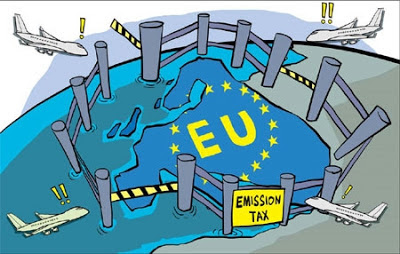FAA Category 1 Upgrade Anticipated for November, EU Audit Underway
The Civil Aviation Authority of the Philippines (CAAP) isn't allowing the Cebu Pacific incident in Davao to curb its dreams of returning to Category 1 status with the United States Federal Aviation Administration. The CAAP announced that it had struck a preliminary agreement with the American aviation regulator to remove the current restrictions imposed under category 2 status as early as this November.
.jpg) |
| Image Source: KFYR TV |
Category 2 status is currently preventing Philippine carriers from expanding flights in the United States from flying to new destinations to utilizing modern aircraft like the Boeing 777. Under the agreement, the Federal Aviation Administration (FAA) would permit the lifting of the category 2 status on a probationary basis pending a final assessment by the FAA.
The probation would be enforced for two years and would involve FAA officials flying in and out of the Philippines periodically to address the sustainability aspect of the new measures implemented by the CAAP to address original safety issues raised by the International Civil Aviation Organization. In other words, the FAA wants to provide ongoing monitoring of the CAAP to ensure that there are no lapses or shortcomings in the new measures as time progresses and that the Philippine aviation industry maintains the standards expected of it.
While the Civil Aviation Authority stated that the lifting could occur as early as November, there are no guarantees that it will be permanently lifted. Such a decision to not permanently lift the ban could only happen if there was a lapse or failure during the FAA's on going monitoring over the next two years. That is why they will visit to ensure that a retrogression does not occur paving the way for a permanent lifting of the ban once the probationary period is over.
Meanwhile, European aviation regulators are in the Philippines to review the findings of the ICAO and to validate that the results are positive. If the regulators findings are favourable, the Philippines would be removed from the European Union blacklist enabling Philippine carriers to launch flights to European airports. While the European inspection occurs as the CAAP deals with the incident at Davao Airport, officials of the CAAP are confident that the incident will help to improve the country's chances of getting an upgrade rather than hurting it.
 |
| Image Source: China Daily European Weekly |
As the Civil Aviation Authority took a tough approach against Cebu Pacific, it will only demonstrate the Philippine regulator's ability to enforce their own regulations against airlines in the country. It was revealed at a press conference that the capacity of the Philippine government to adequately enforce safety oversight was one of the major concerns of the FAA and EU regulators.
The ban on flights to the European Union has been in place since 2010 following a report released by the ICAO a year earlier where "significant safety concerns" in the country's aviation standards were raised. The FAA downgrade has been in place since 2008. The European regulators will complete their four day on-site inspection by June 7. The results of the audit will be presented at a meeting of the European Union Air Safety Committee by the end of June. The results will be discussed and it is hoped that an official response will be provided not long after that.
Transportation Secretary Joseph Emilio Abaya said that he is confident that the Cebu Pacific incident would not interfere with the ongoing evaluations by the US FAA and the European Union. "These events happen in most advanced societies. What is important is that our airlines are complying with international safety standards and procedures. I am quite confident we are," said Abaya.







No comments